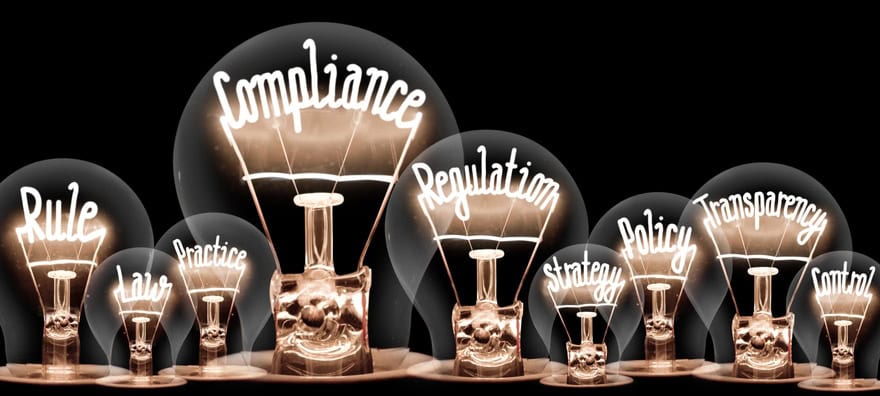Compliance Rules You Must Know
As the global marketplace increasingly becomes more and more digitally reliant, the greater the emphasis on regulation into managing digital interactions. Businesses who are using digital interfaces to keep up with competitors and consumers need to be aware of the compliance laws that impact them the most. The rules surrounding digital compliance are constantly evolving because the threats that businesses face continue to develop every day. Compliance laws are developed as a means of controlling the playing field, ensuring that no one group is at an unfair disadvantage by utilizing predatory practices that put others at a disadvantage.

Understanding Compliance Laws
Once your business begins functioning digitally, there are dozens of IT compliance laws that you are mandated to follow. These laws are developed to help promote business functionality and protections, and many of these specific laws may actually be so basic to your practices that they never even feel like a restriction, but others may need to be minded more closely. These compliance laws are developed to maintain regulation in connection with medical records, credit card data, and other private individual records. Mishandling personal data could cause major trouble for your business, so being aware of these compliance rules is very important.
Here is what you need to know to stay up to date:
- IT compliance laws are developed to ensure that every business is doing their part to protect their own information, as well as that of their customer base.
- While many compliance laws are focused on data security, this isn’t the only purpose of this set of regulations. How data is stored, including which tools are utilized and who can gain access to corporate data is also regulated by compliance laws.
- The goal of IT compliance laws is to ensure that data is stored and shared in the safest way possible for everyone involved. It doesn’t help anyone when a malware attack puts personal data at risk.
There are some industries that are subject to more IT compliance laws than others. Those with the strictest compliance laws include:
- Ecommerce and retail industries
- Finance and banking
- Insurance
- Utilities
- Medical and health care services
- Credit card companies
Companies that work within these industries are most likely to be working with private information and client data that needs to be protected, and the compliance laws put into effect for managing these industries are designed to help protect the company as well as the individual.
Here is a shortlist of some of the biggest IT compliance laws that you should be aware of:
- HIPAA. This is the Health Insurance Portability and Accountability Act. This controls the way that information is shared across the medical and insurance industries.
- FISMA. This is the Federal Information Security Management Act of 2002, which regulates the responsibilities that federal agencies have online when working with personal data.
- GLBA. This is the Gramm-Leach-Bliley Act, which is what regulates the way financial institutions disclose consumer information.
- GDPR. This is the General Data Protection Regulation, which regulates how all companies manage personal computer information.
- CCPA. This is the California Consumer Privacy Act, which went into effect on January 1 of 2020. This is considered one of the strictest compliance laws enforced in the United States, enacting a great deal of control over how private data can be used and shared across corporate platforms.
The reality is that compliance laws are put into effect to protect your corporate interests just as much as they are there to protect the consumer. Data breaches can be incredibly damaging to a company’s online reputation, and the last thing that you want is for potential customers to feel that working with your company is unsafe for any reason. Working with a strong IT support company can help you manage these IT compliance laws and ensure that everything your business does help you stay up to date with the latest regulations.



